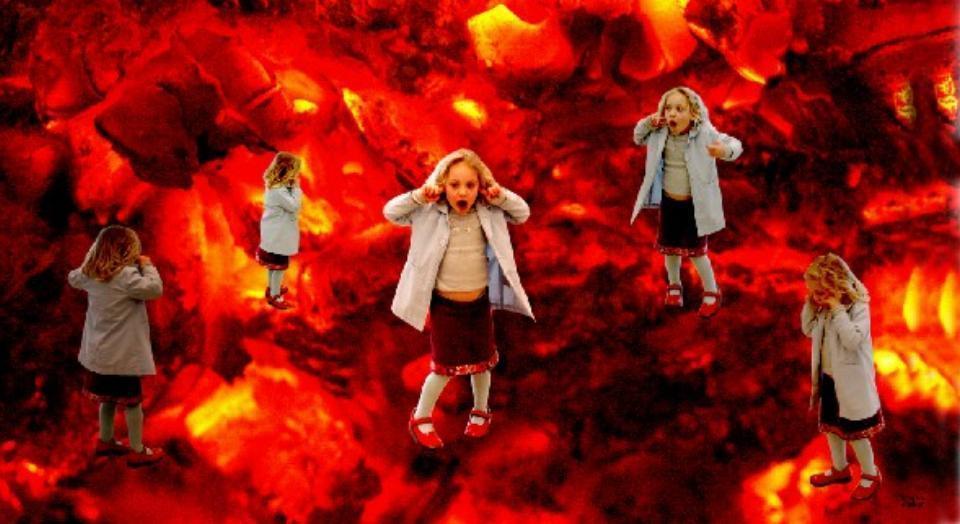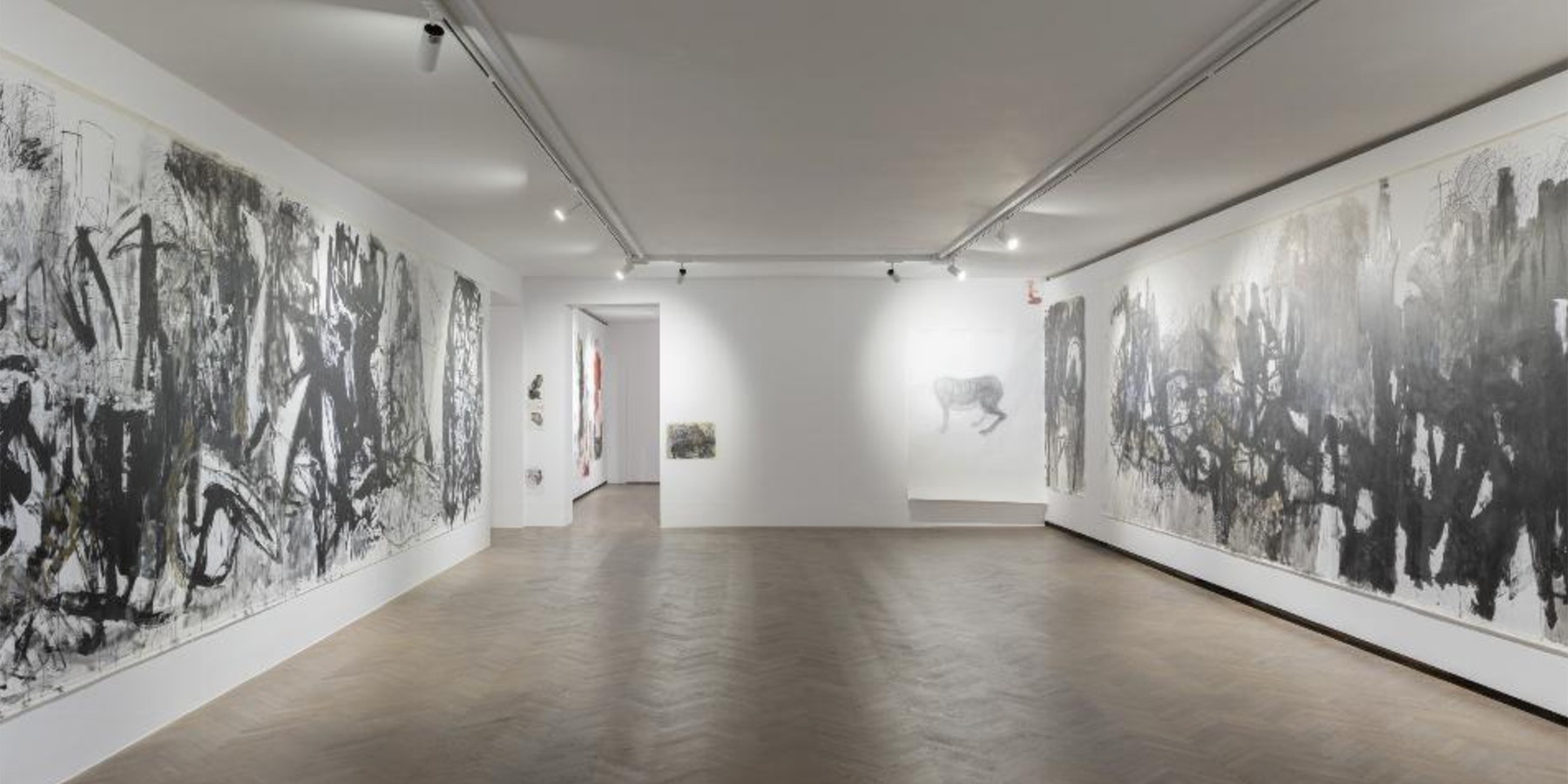Marta Deskur
Condemnation
Marta Deskur
Condemnation, 2007, lightbox, 70 x 127 cm
Collection II of the Arsenal Gallery in Białystok. Works donated to the Arsenal Gallery by the artist

The two works, Condemnation and Assumption, have been presented at an exhibition of the artist Opowieści zwięzłe [Concise Stories] at Galeria Arsenał in Białystok (2007). The idea of the presentation originated from the words of Michel Houellebecq, assigning an eschatological dimension to the exhibition, who claimed that the story of a human life can be as long or as short as one wishes it to be. The metaphysical or the tragic option, which is limited, after all, to the dates of birth and death traditionally inscribed on tombstones, has the obvious asset of being extraordinarily concise.*
One of the issues present in Deskur’s art is the issue of values. The artist has often analysed the elements of social life from that perspective. In Concise Stories, the issue has been related to the universal question about life and the spiritual condition of a human being. The temporal scope determined by the dates of birth and death mentioned by Houellebecq, is treated here conventionally, since the course of a human life is intertwined with the life of the universe. The two works refer to all that takes place after death seen from the Christian perspective. The vision evokes the anticipation of a reward or of punishment. Condemnation has its consequences in hell, while Assumption refers to eternal life in heaven. Deskur assigns realistic visual equivalents to these notions. A marry girl with a lollipop in her hand is drifting among the clouds in Assumption, while in Condemnation we see her screaming, burning in flames.
The works can be seen as a commentary on the trivialization of religion and spiritual life. Biblical and visionary narratives describe the underworld mainly in a metaphysical way, while Deskur shows heaven and hell but applying their colloquial images: flames and fluffy clouds. In the Christian tradition, heaven and hell are unfathomable, while the visions of heaven in Assumption and of hell in Condemnation recall modern devotional images, kitsch contemporary art and religious culture which is ever more distant from the sacrum. The artist points to the dissonance between the mystery and its literal interpretation, and asks about religion, its status as a value and its understanding by the contemporary society.
Izabela Kopania
* Michel Houellebecq, Atomised, translated by Frank Wynne, London 2000.

PLAN YOUR VISIT
Opening times:
Thuesday – Sunday
10:00-18:00
Last admission
to exhibition is at:
17.30